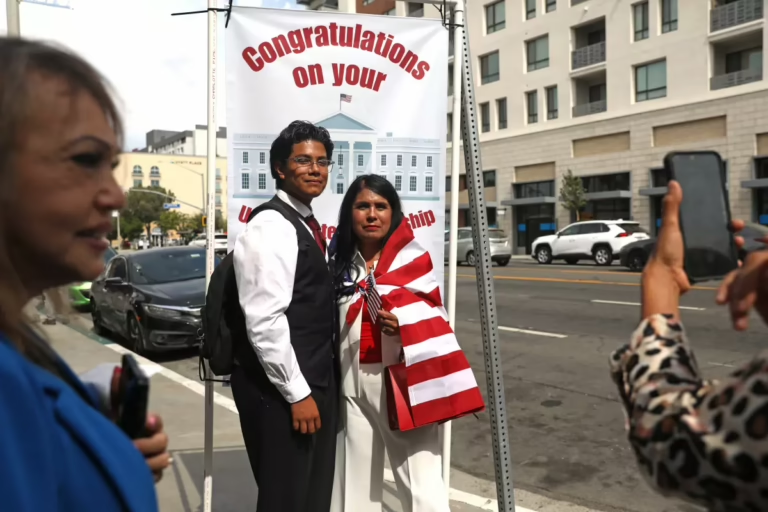The Trump administration has unveiled significant modifications to the U.S. naturalization procedure, introducing a more challenging civics examination that many critics argue will create additional obstacles for immigrants who have already integrated into American society.
The revamped test increases the pool of possible questions from 100 to 128 and raises the passing criteria to 12 correct answers out of 20 questions, compared to the current requirement of 6 correct answers out of 10. This change echoes a brief 2020 version of the test implemented during Trump’s initial term, which was later rescinded by the Biden administration in 2021.
According to officials, the updated exam aims to more thoroughly evaluate an applicant’s knowledge of U.S. history, government structure, and English proficiency, while also safeguarding “core American traditions and values.” The Department of Homeland Security describes this revision as part of a comprehensive strategy to ensure that future citizens demonstrate a genuine commitment to the “American way of life.”
This development coincides with a wider crackdown on immigration, including Trump’s promise to execute the largest deportation campaign in U.S. history and intensified scrutiny of immigrants’ moral character, community involvement, and social media presence.
Immigration advocates have strongly criticized the new test, labeling it an unnecessary hurdle designed to prevent lawful immigrants from obtaining citizenship and to align the naturalization process with conservative political goals.
“This policy only serves to make it more difficult for long-term residents who contribute daily to this country to secure the permanent protections that U.S. citizenship provides,” stated an immigration attorney.
The policy shift follows other contentious initiatives, such as increased in-person interviews within applicants’ neighborhoods and rigorous checks to confirm they have never participated in illegal voting. Critics argue that these measures, combined with recent immigration raids and Supreme Court decisions on racial profiling, represent a broader effort to weaponize immigration enforcement.
When the Biden administration reinstated the previous test, it highlighted that the 2008 version was crafted with input from over 150 organizations, educators, and historians to ensure fairness and accessibility, particularly for those learning English as a second language.
Advocates warn that reintroducing the more difficult test will once again place citizenship beyond the reach of many immigrants who have lived, worked, and raised families in the United States for years.


















0 Comments